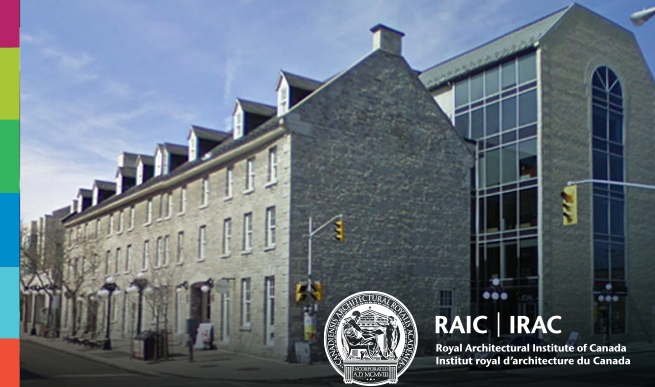![PhD and Postdoc Vacancies at Netherlands [UG]](https://scholaridea.com/wp-content/uploads/2020/07/University-of-Groningen.jpg)
PhD position in Dynamic single-cell analysis will use highly sophisticated quantitative microscopic analyses with microfluidics
Applications are invited for a 4-year PhD study, starting as soon as possible, in the research group of Prof. Matthias Heinemann, (https://www.heinemannlab.eu) at the Groningen Biomolecular Sciences and Biotechnology Institute. Please see the position as a postdoc in Dynamic single-cell analysis also: https://www.rug.nl/(…)ils=00347-02S000985P
The eukaryotic cell cycle is a fascinating research topic. While we know many of the cell biological changes and biochemical control mechanisms, it turns out that there is still so much that we do not understand. For instance, we just recently showed that also metabolism is dynamic during the cell cycle, and a metabolic oscillator might even exert cell cycle control (Papagiannakis et al, 2017, Molecular Cell; Litsios et al, 2019, Nature Cell Biology).
The aspect that we now want to explore within this project is the following: We have recently obtained indication that the rate of protein synthesis is dynamic during the cell cycle, meaning that the ribosome produces different amounts of protein at different moments. Using budding yeast as a model, we now want to unravel the molecular mechanisms that tune the activity of the ribosome as a function of the cell cycle progression.
To this end, we will use highly sophisticated quantitative microscopic analyses with microfluidics as well as different dynamic state-of-the-art perturbation methods, such as the auxin-dependent protein depletion system and optogenetics. Using CRISPR-based genetic engineering, we will also construct different reporter strains that allow us to monitor the effect of the introduced dynamic perturbations.
Qualifications
The ideal candidate for this project is an experimental biologist or biophysicist, with affinity or interest in quantitative microscopy. Some basic Python knowledge is beneficial, but not a must. A plus is cloning experience, but also this is not a must.
Your profile includes:
• a Master degree in (molecular) biology, biochemistry, biophysics, or systems biology
• excellent command of the English language with strong communication skills
• ability to work efficiently, independently as well as in a team.
Organisation
Founded in 1614, the University of Groningen enjoys an international reputation as a dynamic and innovative center of higher education offering high-quality teaching and research. Flexible study programmes and academic career opportunities in a wide variety of disciplines encourage the 36,000 students and researchers alike to develop their own individual talents. As one of the best research universities in Europe, the University of Groningen has joined forces with other top universities and networks worldwide to become a truly global center of knowledge. The Faculty of Science and Engineering (FSE) is the largest faculty within the University. We offer first-rate education and research in a wide range of science and engineering disciplines. Our community has an open and informal character with students and staff from around the world.
Conditions of employment
We offer an attractive job with (i) awesome microscopy technique, (ii) nice interactions in a truly interdisciplinary/international lab, (iii) potential to explore totally new science, (iv) lots of freedom to shape the project.
We offer you, in accordance with the Collective Labour Agreement for Dutch Universities:
• a salary of € 2,443 gross per month in the first year, up to a maximum of € 3,122 gross per month in the fourth and final year
• a holiday allowance of 8% gross annual income
• an 8.3% end-of-year bonus and participation in a pension scheme for employees
• first, a temporary position of one year with the option of renewal for another three years. Prolongation of the contract is contingent on sufficient progress in the first year to indicate that a successful completion of the PhD thesis within the next three years is to be expected. A PhD training programme is part of the agreement and the successful candidate will be enrolled in the Graduate School of Science and Engineering.
The conditions of employment: https://www.rug.nl/about-us/work-with-us/
Application
You may apply until 4 July 11:59pm / before 5 July 2022 Dutch local time (CET) for this position by means of the online application form (click on “Apply” below on the advertisement on the university website).
Applications for the position should include (as a single PDF file):
• cover letter with background and motivation to apply for this position
• curriculum vitae, including details of Bachelor and Master degrees, labwork experience and a publication list, if applicable
• detailed (max. 2 pages) description of previous research experience
• contact details of 2 academic references who can provide information on your suitability for the position.
The University of Groningen strives to be a university in which students and staff are respected and feel at home, regardless of differences in background, experiences, perspectives, and identities. We believe that working on our core values of inclusion and equality are a joint responsibility and we are constructively working on creating a socially safe environment. Diversity among students and staff members enriches academic debate and contributes to the quality of our teaching and research. We therefore invite applicants from underrepresented groups in particular to apply. For more information, see also our diversity policy webpage: https://www.rug.nl/(…)rsity-and-inclusion/
Our selection procedure follows the guidelines of the Recruitment code (NVP), https://www.nvp-hrnetwerk.nl/sollicitatiecode/ and European Commission’s European Code of Conduct for recruitment of researchers, https://euraxess.ec.europa.eu/jobs/charter/code
Unsolicited marketing is not appreciated.
Information
For information you can contact:
- Prof. Matthias Heinemann, m.heinemann@rug.nl
Please do not use the e-mail address(es) above for applications.
Additional information
- University of Groningen
- Groningen Biomolecular Science and Biotechnology Institute
- The City of Groningen
![Postdoctoral and Research Opportunities at McGill University [CA]](https://scholaridea.com/wp-content/uploads/2020/06/mcgill-university-30-may-2019-768x402.jpg)

